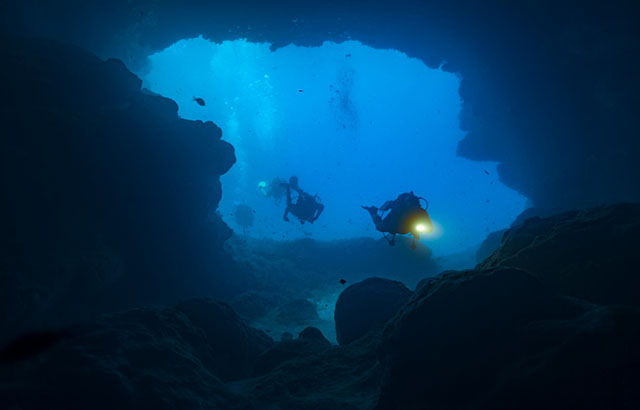
Deep-sea ecosystems are potentially at risk from deep-sea mining according to Queen Mary University of London research.
The study, which analyses what is known about microbes in deep-sea environments, also shows that some of these habitats may be impacted more than others by mining activities.
Interest in underwater extraction of mineral resources from the seabed through mining has increased in recent years, driven by consumer demands for metals such as a zinc, cobalt and rare earth elements, which are used in batteries for smartphones and electric cars.
Exploring the spectrum of seafloor life
Unlike previous studies which focus on wider environmental impacts of deep-sea mining, this research considers the microscopic spectrum of seafloor life and the services that this life provides. Microbes across the seafloor are responsible for essential ecosystem services, including fuelling the food web. Environments that are promising for mining are also often the sites of important and unusual animal and microbe communities which are slow to recover from disturbance.
The researchers analysed four types of deep-sea mineral resources and found that the likely impact of mining on microbial ecosystems varied substantially, from minimal disturbance to the irreversible loss of important ecosystem processes. In particular hydrothermal vents were particularly sensitive, as well as valuable, since the hot mineral-rich waters support robust communities of microbes that form the vital base of the food web in these ecosystems.
The extreme environmental conditions also foster rich genetic diversity among the microbes, making them promising candidates in the search for new drugs for cancer treatment as well as other new biotechnology applications.
Assessing the consequences of mining activities
The authors also emphasise the importance of evaluating the consequences of mining activities in environmental assessments. They recommend that baseline analyses of microbial diversity, biomass, and rates of chemical processes be included in environmental impact assessment planning.
The International Seabed Authority of the United Nations is working to establish guidelines for countries and contractors to explore the seafloor for minerals, and to eventually mine them. While guidelines for licensed exploration already suggest that site assessments should include how much microbial life is present, the authors of the new study highlight that it is also important to determine what roles the microbes are playing and assess how they would be impacted by mining.
Dr James Bradley, Lecturer in Environmental Science at Queen Mary University of London, and co-author of the study said: "It is vital to understand the potential impacts of mining activities to figure out if they should occur and how to manage them if they do.
"This is an important conversation between policymakers, industry, and the scientific community, and it's essential that we work together to get this right. Once these ecosystems are damaged, they may never fully recover."
Dr Beth Orcutt, Senior Research Scientist at Bigelow Laboratory for Ocean Sciences and the lead author of the study said: "The push for deep-sea mining has really accelerated in the last few years, and it is crucial that policy makers and the industry understand these microbes and the services they provide. This paper establishes what we know and suggests next steps for using the best science to evaluate the impacts of this new human activity in the deep sea."
Dr Julie Huber, Associate Scientist from the Woods Hole Oceanographic Institution and co-author of the new study added: "These microbes have incredible potential to inspire new solutions to all sorts of medical and technical challenges we face today but if we damage or destroy a habitat like a hydrothermal vent, we lose the diverse the pool of microbial genetic information from which we can find new enzymes or drugs."






